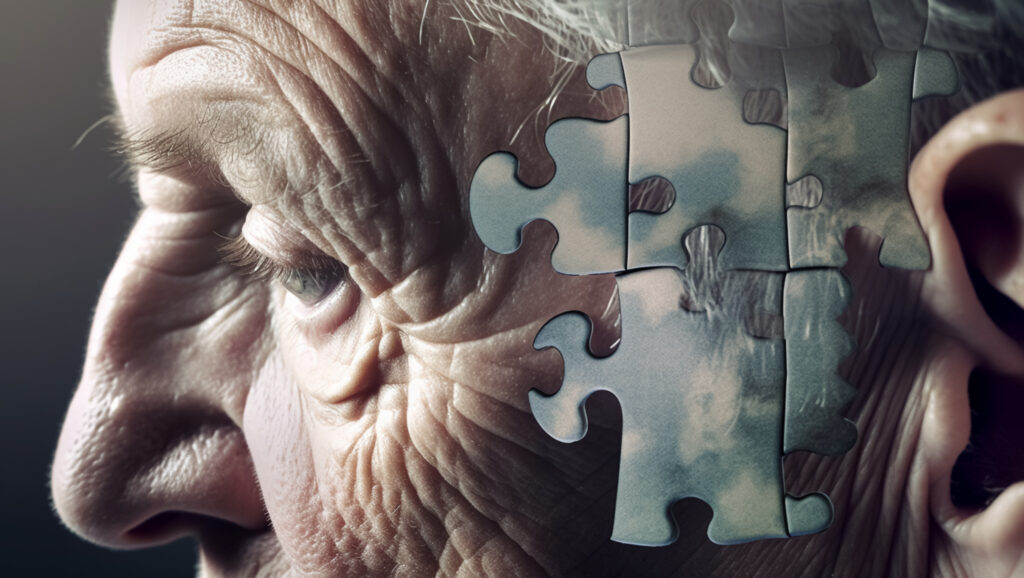Vision Loss and Dementia: Why Vision Loss Matters More Than You Think
- 1.Vision Loss and Dementia: Why Vision Loss Matters More Than You Think
- 2.Here’s Your Personalized Navigation: How LLMs Help the Visually Impaired Navigate the World
- 3.Seeing Beyond: How LLMs and AR Revolutionize Object Recognition and Language Translation for the Visually Impaired
- 4.Breaking Down Barriers: How LLMs Simplify Complex Information for All Users
- 5.LLMs Reach Expert-Level Accuracy: EYE6 Brings AI Vision Support to Life
- 6.Bringing Clarity to Life: The Link Between Vision Loss and Mental Health

Dementia is a condition that many fear as they age, a specter that looms large in the minds of those entering their later years. The loss of memory, the confusion, and the erosion of one’s identity are terrifying prospects. However, what many don’t realize is that one of the contributing factors to this cognitive decline might be something as seemingly unrelated as vision loss.
Recent research report in The Lancet has found the intricate connection between vision loss and the development of dementia. The study identified untreated vision impairment as a critical risk factor, placing it alongside other well-known factors like high cholesterol, hypertension, and smoking.
But how exactly does vision loss lead to dementia? The answer lies in the brain’s need for constant sensory input to stay active and healthy. Our brain relies heavily on the information it receives through our eyes to make sense of the world around us. This visual input stimulates various parts of the brain, helping to maintain and reinforce neural connections that are crucial for memory, thinking, and decision-making.
When vision begins to deteriorate, especially if left untreated, the brain receives less visual information. This reduction in sensory input can lead to a decrease in brain activity, particularly in areas involved in processing visual information. Over time, this lack of stimulation can cause these neural pathways to weaken, much like a muscle that atrophies when not used. This weakening of the brain’s infrastructure makes it more vulnerable to the cognitive decline that characterizes dementia.
Imagine the brain as a bustling city, with millions of connections, roads, and pathways that allow for the smooth flow of information, much like traffic in a well-organized urban environment. The eyes, in this analogy, are like the main highways leading into the city, bringing in vital information that keeps everything running smoothly. When these highways are clear and functioning well, the city thrives, with ideas and memories flowing freely, allowing the brain to function at its best.
However, as vision deteriorates with age, it’s akin to these highways becoming blocked or narrowed. Traffic slows down, and eventually, the flow of information into the brain is significantly reduced. This lack of sensory input deprives the brain of the stimulation it needs to maintain its intricate network of connections. Just as a city might begin to crumble without the regular influx of resources, the brain can start to deteriorate without sufficient visual information.
This research highlights the critical connection between untreated vision loss and the risk of developing dementia, and it also opens the door to innovative solutions that can help mitigate this risk. This is where Eyedaptic steps in, offering a transformative approach to help vision impairment through advanced augmented reality (AR) technology.
Our latest product, EYE 6, incorporates advanced Multimodal Generative AI technology, elevating the AR experience to a whole new level. This smart eyewear offers real-time image analysis and personalized assistance, making it more than just a vision aid. The AI Assistant embedded in the glasses can describe the surrounding environment and provide detailed information, allowing users to perceive and understand the world around them, even with visual limitations.
Whether at home, at work, or on the go, EYE 6 enhances daily life by delivering precise visual enhancement and intelligent environmental interpretation. This seamless interactive experience not only makes life more convenient but also helps keep the brain engaged, further reducing the risk of cognitive decline.
Our product is not just a pair of glasses; it’s a comprehensive visual assistant designed to improve the quality of life and independence for our users.
Reference:
Livingston G, Huntley J, Liu KY, et al. Dementia prevention, intervention, and care: 2024 report of the Lancet standing Commission. Lancet. 2024; published online July 31; DOI: https://doi.org/10.1016/S0140-6736(24)01296-0
